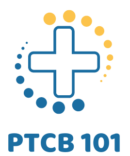Looking for programs in a specific city? Check out our lists of PTCB in New York City, Hempstead, Brookhaven, Islip, Oyster Bay, Buffalo, North Hempstead, Babylon, Rochester, and Yonkers.
Learning how to become a pharmacy technician in New York is your first step towards a rewarding career.
- Understand the role: Pharmacy technicians assist pharmacists, manage inventory, and interact with patients.
- Meet educational requirements: You’ll need a high school diploma or GED, plus relevant coursework.
- Enroll in a training program: Choose an accredited program for the best training and job opportunities.
Start your journey to become a pharmacy technician in New York today.
- Understanding the Role of a Pharmacy Technician
- Educational Requirements
- Choosing a Pharmacy Technician Training Program
- Certification and Licensing Requirements in New York
- Applying for Pharmacy Technician Certification
- Gaining Practical Experience
- Continuing Education and Career Advancement
- Job Opportunities and Work Environments
- Tips for Success
- Looking for Pharmacy Technician Information On States Bordering New York?
- Conclusion
Understanding the Role of a Pharmacy Technician
Pharmacy technicians play a pivotal role in the healthcare system. They work under the supervision of licensed pharmacists to ensure efficient pharmacy operations. From dispensing medications to managing inventory, their tasks are diverse and crucial.
Core Responsibilities
Pharmacy technicians handle multiple responsibilities, including:
- Medication Dispensation: They accurately prepare and dispense medications to patients.
- Inventory Management: They keep track of medication stock and reorder supplies when necessary.
- Patient Interaction: They provide customer service, answer patient queries, and assist with insurance claims.
- Administrative Tasks: They maintain patient records and manage pharmacy paperwork.
Skills Required
To succeed as a pharmacy technician, you need specific skills:
- Attention to Detail: Accurate medication dispensation requires precision.
- Communication Skills: Clear communication with patients and healthcare professionals is essential.
- Technical Skills: Familiarity with electronic health records (EHRs) and pharmacy software is necessary.
- Multitasking: Managing multiple tasks efficiently in a fast-paced environment is crucial.
Educational Requirements
To become a pharmacy technician in New York, you must meet certain educational standards. Here’s what you need to know:
High School Diploma or GED
A high school diploma or GED is typically required to enter the field. While some training programs do not mandate prior coursework, classes in math, biology, and chemistry can be beneficial.
Relevant High School Courses
During high school, consider taking courses such as:
- Math: Essential for pharmaceutical calculations.
- Biology: Provides a basic understanding of human anatomy and physiology.
- Chemistry: Helps in understanding the composition of drugs.
Computer Skills
Basic computer skills are increasingly important as pharmacies adopt digital systems for managing patient and inventory information. Familiarity with software applications can give you an edge.
Choosing a Pharmacy Technician Training Program
Selecting the right training program is a critical step in your journey. It’s essential to choose a program accredited by recognized bodies like the American Society of Health-System Pharmacists (ASHP).
Factors to Consider
When selecting a training program, evaluate the following:
- Program Duration: Ensure the duration fits your schedule and goals.
- Cost: Compare tuition fees and check for financial aid options.
- Curriculum: Review the coursework to ensure it covers necessary topics.
- Accreditation: Confirm the program’s accreditation status.
Types of Training Programs
There are various types of pharmacy technician training programs, including:
- Certificate Programs: Typically lasting a few months and focused on core skills.
- Associate Degree Programs: More comprehensive, lasting around two years, and may include general education courses.
Job Placement Rates
Review the program’s job placement rates and partnerships with local pharmacies. High placement rates can indicate the program’s effectiveness in preparing students for employment.
Externships and Hands-On Training
Programs offering externships or hands-on training provide practical experience that is invaluable when entering the workforce. These opportunities allow you to apply theoretical knowledge in real-world settings.
Certification and Licensing Requirements in New York
In New York, certification and registration with the state pharmacy board are key requirements for pharmacy technicians.
Certification Organizations
The two main organizations for pharmacy technician certification are:
- Pharmacy Technician Certification Board (PTCB): Offers the Certified Pharmacy Technician (CPhT) credential.
- National Healthcareer Association (NHA): Provides the ExCPT (Exam for the Certification of Pharmacy Technicians) credential.
Both certifications require passing a standardized exam that assesses your knowledge and skills.
State Registration
In addition to national certification, New York requires pharmacy technicians to register with the state pharmacy board. You must adhere to specific regulatory standards and maintain compliance.
Benefits of Certification
Obtaining certification enhances your career prospects by:
- Demonstrating Competence: Certification shows that you have met industry standards.
- Increasing Employability: Many employers prefer or require certified technicians.
- Ensuring Compliance: Certification ensures you meet state and national regulations.
Maintaining Certification
Continuing education is often required to maintain certification. Staying updated with industry advancements ensures compliance and keeps your skills current.
Applying for Pharmacy Technician Certification
The application process for pharmacy technician certification involves several steps. Here’s a guide to help you navigate it:
Application Submission
To apply for certification, you need to:
- Choose an Organization: Decide whether to certify with the PTCB or NHA.
- Gather Required Documents: Collect proof of education and training, such as transcripts and certificates.
- Submit Application: Complete and submit the application form, along with necessary documentation.
Examination Fees
Expect to pay an examination fee, typically around $129, when applying for certification. This fee is required for processing your application and administering the exam.
Exam Preparation
Preparing for the certification exam involves:
- Study Materials: Use study guides, textbooks, and online resources to review exam content.
- Practice Tests: Take practice exams to familiarize yourself with the format and types of questions.
- Review Sessions: Join study groups or attend review sessions for additional support.
Scheduling the Exam
Once your application is approved, you’ll receive instructions on scheduling your exam. Choose a convenient date and location to take your test.
Taking the Examination
On exam day, arrive early and bring necessary identification. The exam typically covers topics such as:
- Pharmaceutical Calculations: Dosage and conversions.
- Pharmacology: Drug classifications and interactions.
- Pharmacy Law: Regulations and ethical considerations.
- Customer Service: Communication and patient care.
Successfully passing the exam will earn you your certification, paving the way for career opportunities as a pharmacy technician.
This ends the content I have written as required.
Gaining Practical Experience
Practical experience is a crucial aspect of becoming a pharmacy technician in New York. It bridges the gap between theoretical knowledge and real-world application, ensuring you are well-prepared for your role.
Internships and Externships
internships, externships, or entry-level positions provide hands-on experience in various pharmacy settings. These opportunities allow you to:
- Apply Theoretical Knowledge: Test your academic learning in real-world scenarios.
- Develop Professional Skills: Hone skills like customer service, inventory management, and medication dispensing.
- Build Professional Networks: Connect with industry professionals and potential employers.
Entry-Level Positions
Starting in an entry-level position can be an excellent way to gain relevant experience. Retail pharmacies, hospitals, and long-term care facilities often hire entry-level pharmacy technicians. These positions offer:
- On-the-Job Training: Learn practical skills directly from experienced pharmacists.
- Exposure to Different Pharmacy Settings: Understand the dynamics of various workplaces.
- Career Advancement Opportunities: Prove your capabilities and advance to higher roles within the organization.
Continuing Education and Career Advancement
Continuing education keeps you up-to-date with the latest advancements in the field. It is vital for your growth and credibility as a pharmacy technician.
Importance of Continuing Education
Continuing education benefits include:
- Staying Current: Keep up with new medications, technologies, and regulations.
- Enhancing Skills: Gain additional certifications in areas like sterile compounding or medication therapy management.
- Meeting Certification Requirements: Fulfill necessary continuing education units (CEUs) to maintain your certification.
Advanced Certifications and Specializations
To further your career, consider obtaining advanced certifications. Specialized skills make you more valuable to employers and can lead to higher-paying positions. Some advanced certifications you might pursue include:
- IV Admixture Certification: Specialize in preparing intravenous medications.
- Nuclear Pharmacy Technology Certification: Work with radioactive materials used in medical procedures.
- Oncology Pharmacy Technician Certification: Focus on medications used in cancer treatments.
Professional Development Opportunities
Participate in workshops, seminars, and industry conferences to further your professional development. Joining professional organizations, such as the National Pharmacy Technician Association (NPTA), provides access to valuable resources and networking opportunities.
Job Opportunities and Work Environments
Pharmacy technicians in New York have numerous employment opportunities due to the high demand for healthcare services.
Retail Pharmacies
Retail pharmacies, such as chain drugstores and independent pharmacies, are the most common employers of pharmacy technicians. In these settings, you can expect to:
- Interact with Customers: Provide personalized customer service and medication counseling.
- Manage Inventory: Ensure the pharmacy is well-stocked and organized.
- Assist with Insurance Claims: Help patients navigate their insurance plans.
Hospital Pharmacies
Hospital pharmacies provide a different work environment, focusing more on inpatient care. Working in a hospital pharmacy allows you to:
- Collaborate with Healthcare Professionals: Work closely with doctors, nurses, and other healthcare providers.
- Prepare Specialized Medications: Compound medications tailored for individual patients.
- Handle Emergency Situations: Respond promptly to urgent medication needs.
Long-Term Care Facilities
Long-term care facilities, such as nursing homes, offer unique job opportunities for pharmacy technicians. In these settings, you will:
- Provide Ongoing Care: Manage medication regimens for residents with chronic conditions.
- Work in a Team: Collaborate with healthcare providers to ensure optimal patient care.
- Maintain Records: Keep accurate patient records and medication histories.
Mail-Order and Online Pharmacies
Mail-order and online pharmacies are growing in popularity, offering another avenue for pharmacy technicians. Working in this environment involves:
- Processing Orders: Accurately prepare and dispense medications for shipment.
- Verifying Prescriptions: Ensure that prescriptions are complete and correctly filled.
- Customer Support: Assist patients with their orders and address any concerns.
Tips for Success
To excel as a pharmacy technician in New York, follow these tips:
Prioritize Professional Development
Continuously seek opportunities to enhance your skills and knowledge. Stay updated on industry trends and advancements through continuing education and professional organizations.
Develop Communication Skills
Effective communication is crucial in this field. Practice clear and concise communication with patients, healthcare providers, and colleagues to ensure accurate information exchange.
Stay Organized
Good organizational skills are essential for managing inventory, maintaining records, and ensuring accurate medication dispensing. Develop and maintain effective organizational habits.
Network within the Industry
Building a professional network can open doors to new opportunities and provide valuable support. Engage with industry professionals through networking within the industry events, social media, and professional organizations.
Looking for Pharmacy Technician Information On States Bordering New York?
In addition to New York, we suggest looking for schools in nearby states.
- How to Become A Pharmacy Technician in New Jersey
- How to Become A Pharmacy Technician in Connecticut
- How to Become A Pharmacy Technician in Massachusetts
- How to Become A Pharmacy Technician in Pennsylvania
- How to Become A Pharmacy Technician in Vermont
Conclusion
Becoming a pharmacy technician in New York involves meeting educational requirements, obtaining certification, gaining practical experience, and pursuing continuous learning. This rewarding career offers diverse opportunities and plays a crucial role in the healthcare system. By following the outlined steps, you can embark on a fulfilling professional journey, contributing to patient care and the effective operation of pharmacies. With dedication and a commitment to ongoing professional development, you can achieve long-term success and satisfaction in this field.

